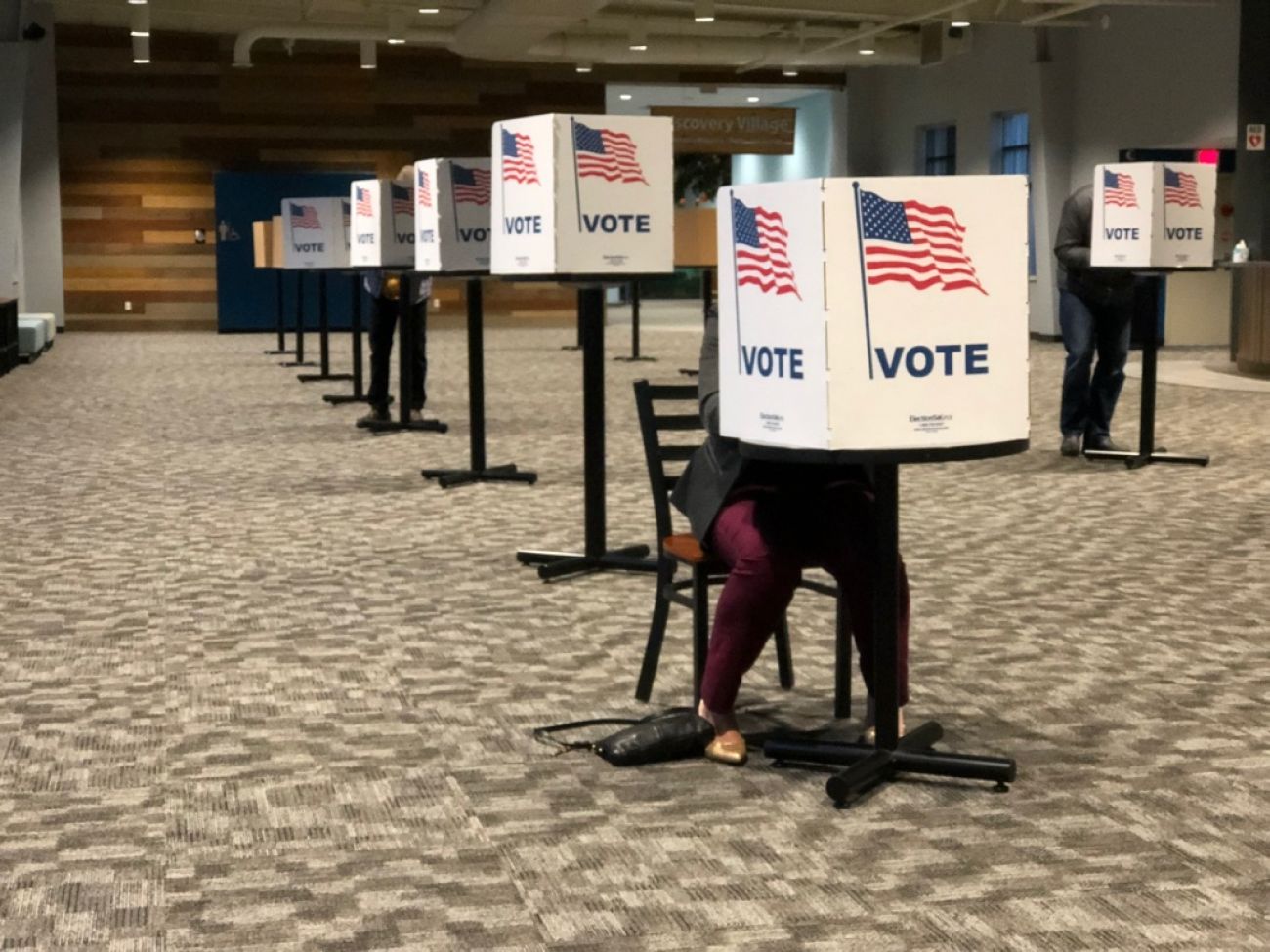What to expect in Michigan’s first election since voting rights amendment

Related: Michigan primary 2020: Election date, how to register to vote, voting absentee
On Tuesday, Michigan voters will participate in the first election since a sweeping voting rights constitutional amendment passed with 67 percent of the vote last November.
The election may seem like small potatoes; only around 17 percent of currently registered voters are impacted by elections May 7, and most of them will be deciding on millages and other local ordinances.
Secretary of State Jocelyn Benson, though, said it’s a landmark to determine whether local clerks have enough staff to handle an expected influx of voters over the next several elections — especially the looming Michigan presidential primary in March 2020.
Among those new rights: The right to vote absentee for no reason, the right to register to vote on Election Day and automatic voter registration.
“May 7 is going to be a good test to see with the implementation of voter registration and vote by mail, what the needs are,” Benson told Bridge Magazine.
“When this has been implemented in other states, you've seen the number of citizens choosing to vote by mail double over the course of a few elections. And so my question is, are we ready for that?”
Related stories:
Those changes are the result of the “Promote the Vote” amendment, which enshrined several new voting rights in the state constitution intended to make it easier for more people to vote.
Here’s what Michiganders can expect from the first election since the sweeping change:
A wider window to register
For the first time, voters can register to vote up to and on Election Day (Beforehand, would-be voters had to be registered at least 30 days in advance.).
The new amendment allows registration by mail up to 15 days ahead of the election. For Tuesday’s election, that was April 22.
If you missed that window, you can still register to vote in person at your local clerk’s office with proof of residency. That includes a driver’s license, a bank statement, or a utility bill, among other options.
Clerks are required to host extended hours this weekend — at least eight hours on Saturday, Sunday or both — to receive absentee voter ballots and to register voters.
Also, those who happened to renew their driver’s license or personal ID card after the amendment went into effect on December 21 will have been automatically registered to vote unless they specifically declined.
More flexibility in casting a ballot
The new amendment also guarantees the right to vote absentee for any reason, which essentially doubles as early voting. Before, people could only vote absentee if they were older than 60, out of town on Election Day, in jail, working as an election inspector in another precinct, unable to make it to the polls for religious reasons, or unable to vote at the polls without help.
There’s still time to receive an absentee ballot in the mail.
To do so, voters must send an absentee voter application (downloaded from the Secretary of State’s online portal) to their local clerk, which must receive it by 5 p.m. Friday. The clerk would then send them a ballot in the mail, which they must turn in by 8 p.m. on Election Day.
Ginger Terpstra, city clerk in Charlotte, southwest of Lansing, said in late April that her office’s absentee voter list had increased by nearly 70 percent ahead of the May election.
“In fact, we’re still sending ballots out pretty regularly to the point that I’ve had to order some more ballots,” Terpstra said.
On Election Day, voters who have registered in advance can go to their precinct to fill out a ballot, per usual. And those who haven’t registered until Election Day can vote absentee at the clerk’s office when they go to register, or take their proof of registration to the polls.
Clerks may be a little frazzled
While the new amendment means more options for voters, it’s a sea change for local clerks who have to ensure they have the staff and resources to serve voters, Benson said.
Michigan’s Bureau of Elections says Michigan has the most decentralized system in the country; elections are administered by the more than 1,600 local and county election officials.
While clerks are generally excited about the possibility of getting more people in their community to vote, Benson said they’ve voiced concerns about resources and staffing to count an uptick in absentee ballots or keeping offices open on the weekend in small townships.
“Our election administrators across the board are severely under-resourced,” Benson said. “And so any changes to election laws and additional requirements yields a question of how are we going to meet this requirement?”
The state Bureau of Elections is considering options to ease those challenges, Benson said, such as pushing for a law that would allow clerks to start counting absentee ballots before Election Day.
Now that straight-ticket voting is guaranteed by the new amendment, Benson’s office is also waiting for approval from the Legislature to use $5 million in funds earmarked for eliminating the practice. The money would be used instead to implement the new voting amendment and the redistricting amendment, Benson said.
Experimenting with securing the vote
The new amendment requires the state to conduct an election audit after statewide elections to assure the public of results.
In the past, the state has had the option to conduct audits but weren’t required to do so. Then-department spokesman Fred Woodhams said at the time they usually reviewed a handful of precincts in every county.
Because this election only covers local jurisdictions, the first mandatory audit won’t be until next year. However, the state is experimenting with taking the audit process up a level by using a process known as a risk-limiting audit — or, more colloquially, the “gold standard” of post-election audits.
This method considers the margin of victory and the number of votes cast to come up with a statistically significant number of votes to double check, providing a high level of confidence and saving valuable elections resources, according to the nonpartisan Brennan Center for Justice.
Michigan did risk-limiting audit pilots after the November midterm elections last year in three cities, said Secretary of State spokesman Shawn Starkey. This time, the state will try the process on three different kinds of elections — one countywide ballot question, one school district ballot question and one local ballot question — to see how it might be used in more elections going forward.
More changes ahead
Very few voters will be choosing partisan candidates on Tuesday, so they won’t yet experience one of the changes brought on by the new voting amendment: the right to vote a straight-party ticket.
Straight-ticket voting — in which voters can fill in one bubble to vote for all of the candidates from a certain political party — was made illegal in Michigan in December 2015.
A court stopped the ban from going into effect on the argument it disproportionately affected African-American voters, but the U.S. Sixth Court of Appeals allowed the ban last year and voters did not have the option in the November election. That was changed by the passage of the new voting rights amendment.
Straight-ticket voting usually only happens during general elections, Starkey of the Secretary of State’s office said. However, there may be a few cities during this year’s August and November elections that will elect partisan officeholders and be able to use the straight-ticket option.
See what new members are saying about why they donated to Bridge Michigan:
- “In order for this information to be accurate and unbiased it must be underwritten by its readers, not by special interests.” - Larry S.
- “Not many other media sources report on the topics Bridge does.” - Susan B.
- “Your journalism is outstanding and rare these days.” - Mark S.
If you want to ensure the future of nonpartisan, nonprofit Michigan journalism, please become a member today. You, too, will be asked why you donated and maybe we'll feature your quote next time!




